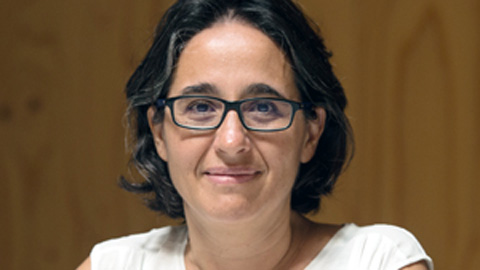Victoria Reyes-García, receives an ERC Consolidator Grant

01/12/2017
The European Research Council (ERC) has announced the 302 winners of the 302 winners of its 2017 Consolidator Grant competition. These excellent mid-career scientists are awarded a total of €630 million, as part of the European Union Research and Innovation program Horizon 2020. With grants worth up to €2 million each, they will be able to consolidate their research teams and to develop their innovative ideas. They are likely to employ post docs, PhD students and other research team members.
ICREA researcher at ICTA-UAB Victoria Reyes- García will receive the Consolidator Grant to develop the project "Local Indicators of Climate Change Impacts. The Contribution of Local Knowledge to Climate Change Research (LICCI).
In the quest to better understand local climate change impacts on physical, biological, and socioeconomic systems and how such impacts are locally perceived, scientists are challenged by the scarcity of grounded data, which has resulted in a call for exploring new data sources. People with a long history of interaction with the environment have developed complex knowledge systems that allow them to detect local impacts of climatic variability, but these insights are absent in climate change research and policy fora. Victoria Reyes-García will bring insights from local knowledge to climate research by providing data on local climate change impacts on physical (e.g., shrinking glaciers) and biological systems (phenological changes) and on perceptions of climate change impacts on socioeconomic systems (crop failure due to rainfall patterns change) and testing hypotheses on the global spatial, socioeconomic and demographic distribution of local climate change impacts indicators.
Research will last five years. During the first 18 months, she will train a team who will develop and implement a data collection protocol and design a web-based platform where citizens can enter information on local climate change impacts indicators. During the following two years of data collection, they will train 40 external PhD students to collect project’s data in data-deficient regions and disseminate the platform. During the last 18 months, the Analysis phase, the core team will use spatial matching and multivariate analysis to test hypotheses related to the spatial, socioeconomic, and demographic distribution of local climate change impacts indicators. This project will fill theoretical and spatial gaps on climate change impacts research. It will also improve local capacity to respond to climate change impacts and help bridge epistemological differences between local and scientific knowledge systems.
The ERC Consolidator Grant are awarded to outstanding researchers of any nationality and age, with at least seven and up to 12 years of experience after PhD, and a scientific track record showing great promise. Research must be conducted in a public or private research organisation located in one of the EU Member States or Associated Countries. The funding (maximum of €2 million per grant), is provided for up to five years.
The grantees will carry out their projects at universities and research centres in 22 different countries across Europe, with as leading locations the United Kingdom (60 grants), Germany (56), France (38), the Netherlands (25) and Spain (13). In this competition, researchers of 39 nationalities received funding, amongst them are notably Germans (55 grants), Italians (33), French (32) and Britons (31). The research projects proposed by the new grantees cover a wide range of topics in physical sciences and engineering, life sciences, as well as social sciences and humanities.
The ERC has evaluated 2,538 research proposals this time, out of which 13% will be funded. Thirty-two percent of grants were awarded to female applicants. The grants will create an estimated 2,000 jobs for postdocs, PhD students and other staff working in the grantees' research teams.